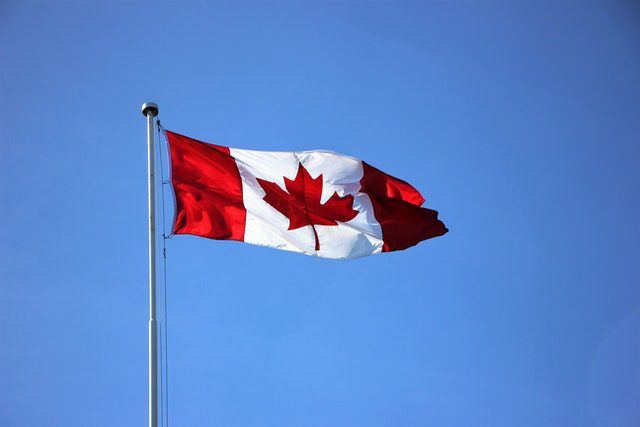
Do you want to study medicine in Canada at an affordable medical school? Then check out this list of low-cost medical colleges in Canada.
The competition to study medicine in Canada is very keen, so it is important for applicants to ensure that they meet the entrance requirements of each medical school to which they apply.
The applicant’s high school certificate and, finally, the type of pre-medical degree and the institution of study should not deter you from applying to any medical school, provided that all the academic requirements of a given university are met.
Not only should applicants plan to meet all academic requirements, but it is also important to meet all deadlines. In general, an application or documentation is ignored if it is received after the deadlines. Incomplete application files are evaluated and rejected.
The medical course in Canada is a 3-5 year program, depending on the universities and the background of each student. For the 5-year medical study program in Canada, the first year is a preparatory year and is designed for those students without a bachelor’s degree in the appropriate scientific field.
To enter the 4-year medical program, the student must have a bachelor’s degree in Biology or other appropriate fields.
Even if Canada has 17 medical universities that offer medical programs ( medicine, dentistry, pharmacy, nursing, etc.) in English and French, Study Medicine in Canada remains one of the most competitive in the world.
Only 15% of Canadian pre-med students gain access to medical school in Canada. To achieve the goal of becoming a doctor, most Canadian students chose medicine in the Caribbean, Eastern Europe, and elsewhere.
Most medical schools required the Medical College Admission Test (MCAT)
Medical College Admission Test (MCAT)
The MCAT is a standardized, multiple-choice exam designed to assess problem-solving, critical thinking, and writing skills, in addition to the examinee’s knowledge of science concepts and principles as a prerequisite for the study of science. Medicine.
The test consists of four test sections: the Verbal Reasoning, Physical Science, and Biological Science sections contain multiple-choice questions and scores range from a minimum of 1 to a maximum of 15 for each section; the Writing Sample section consists of two essays and the total score ranges from a minimum of J to a maximum of T.
The computer-based test is given at established test centers in Canada, the US, and abroad. Check the website for dates and locations. The total duration of the test day is approximately four and a half hours. The regular exam fee was $270 in US funds for the 2013 test dates.
Study medicine abroad – foreign medical students in Canada
Prospective international medical students planning to enter the Medical University in Canada should be aware that not all medical schools accept applications from foreign students. Conversely, some medical schools contract with foreign governments or institutions to accept applications for “supernumerary” positions.
Admission conditions may require that the medical school be compensated for the full cost of medical education, the student will not apply for post-MD (residency) training in Canada, and these graduates will return to their home countries to practice medicine.
Study Medicine Abroad – Canadian Medical Student Abroad
If for any reason an applicant decides to apply for admission to a medical school outside of Canada, there are some important factors to consider. The most important of these is that returning to practice medicine in Canada can be difficult.
This is not intended to deter people from seeking education abroad. Some Canadian citizens have always gone abroad to study at well-known and reputable universities.
Limitations on recognition of MDs earned abroad apply to qualifications earned abroad by both citizens and non-citizens of Canada. Strong motivation, determination, and adequate academic preparation are not in themselves a guarantee that a Canadian citizen attending a foreign medical school will be able to train or practice medicine in Canada in the future.
To practice in Canada as a medical doctor, graduating medical students must be assessed by the Medical Council of Canada (MCC), which awards a qualification in medicine known as the Bachelor of Medical Council of Canada (LMCC) to medical graduates who have completed with the requirements. requirements and passed the Medical Council of Canada Qualifying Examination, Parts I and II. The MCC registers candidates who have been awarded the LMCC on the Canadian Medical Register.
To be admitted to the Medical Council of Canada (MCC) assessment, as an International Medical Student (IMS) or International Medical Graduate (IMG) you must be a student or have graduated from a university listed in the MCC database.
Low Cost Medical Universities (Schools) in Canada
- University of Alberta College of Medicine and Dentistry
- Cumming School of Medicine
- University of British Columbia School of Medicine
- University of Manitoba College of Medicine
- Memorial University of Newfoundland School of Medicine
- Dalhousie University School of Medicine
- McMaster University School of Medicine
- Northern Ontario School of Medicine
- Queen’s Medical School
- Schulich School of Medicine and Dentistry
- University of Ottawa School of Medicine
- University of Toronto Faculty of Medicine
- Laval University Faculty of Medicine
- McGill University School of Medicine
- University of Montreal Faculty of Medicine
- University of Sherbrooke Faculty of Medicine and Science Sciences
- University of Saskatchewan School of Medicine


















We appreciate you for your anniversary